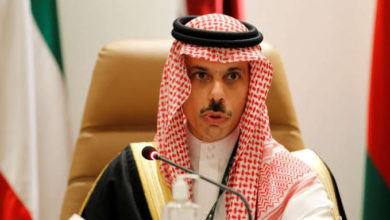
Ashraf AboArafe
The Ambassador of the Custodian of the Two Holy Mosques to the Arab Republic of Egypt, Osama Ahmed Nuqli, confirmed during the dialogue session on the sidelines of the Hajj and Umrah Services Conference and Exhibition, which was entitled “Integrative Efforts between Diplomatic Representations and the Hajj and Umrah System,” that among the requirements related to Hajj, each visa issued has a special purpose. Whether it is for Hajj or Umrah, according to the regulations and instructions, and this is known to the representations, especially the Arab Republic of Egypt, indicating that the complementary efforts between all parties contribute to the process of eliminating what is known as backwardness, which is considered a challenge.
Ambassador Naqli praised the great development in the aspects of using modern technology and technology in the process of issuing visas, which is now done electronically without the need for the pilgrim or pilgrim to go to the embassy or consulate as was done in the past, indicating that the Kingdom’s Vision 2030 contributed to making a major shift in all areas. The various sectors and walks of life, and the awareness process is an essential work for all representations abroad, as they are the first to deal with the Hajj, Umrah pilgrim or visitor, in addition to the companies and offices that provide the service in order to facilitate the process of coming and performing their Hajj and Umrah rituals with reassurance and ease.
For his part, the Ambassador of the Custodian of the Two Holy Mosques to the Republic of Turkey, Fahd bin Asaad Abu Al-Nasr, explained that communication between embassies in such countries is coordination and integration in the first place, and we at the Kingdom’s embassy in Turkey are keen for Turkish pilgrims to obtain all information, instructions and regulations in the Kingdom, and this has culminated in this matter. With success, the Turkish Hajj delegation won first place in the “Labitum” Award for Excellence, presented by the Ministry of Hajj and Umrah to Hajj delegations, and this is one of the incentives for the operating entities to provide the best and highest quality services to the guests of God.
Ambassador Abu Al-Nasr confirmed that there is coordination with the Presidency of Pilgrimage Affairs in Turkey, which publishes awareness messages and also gives them 15-hour training courses before they come to the Kingdom, indicating that there is close cooperation between the Kingdom and Turkey in this aspect and the role of the ambassadors in knowing the gaps and challenges and working to solve them.
In turn, the Dean of the Diplomatic Corps and the Ambassador of the Republic of Djibouti to the Kingdom, Diaa Al-Din Bamakhrama, stated that the Kingdom’s government has spared no effort to do everything that will contribute to the comfort of the guests of God, the pilgrims and Umrah performers, in performing their rituals with ease and ease until they return to their countries safely and securely, indicating that prior coordination Between the Hajj missions and the Ministry of Hajj and Umrah, this success is witnessed, tangible and appreciated.
Regarding the relationship of Hajj missions with embassies and consulates, Ambassador Bamakhrama explained that the relationship is complementary and all Hajj missions are under the representatives of those countries, indicating that every service provided to pilgrims is considered by all Arab and Islamic countries, and the challenges that arise or arise can be developed, confronted and dealt with to overcome them.
The Ambassador of the Custodian of the Two Holy Mosques to Bangladesh, Issa bin Yousef Al-Duhailan, revealed the complementary efforts between the representations abroad and the Hajj and Umrah system, and the cooperation and harmony between them, with the aim of providing the highest levels of service to the Hajj and Umrah pilgrims through the exchange of information and logistical arrangements, so that he can have a unique experience that facilitates the performance of his rituals with ease and ease. He stressed the importance of awareness, especially in a country like the People’s Republic of Bangladesh, which has a population of more than 170 million people, 92% of whom are Muslims who long to visit the Two Holy Mosques and holy places, and a large percentage of whom are illiterate, which poses a challenge to the Kingdom’s embassy in the process of providing awareness and education programmes.
Ambassador Al-Duhailan pointed out that cooperation between the representation, the Hajj and Umrah system, and the official authorities represented by the Bangladesh Pilgrims Affairs Office is in full swing, as it begins after the end of the Hajj season and continues until the end of the next Hajj date. Pointing out that the embassy receives periodically, through the Ministry of Foreign Affairs, regulations for educating pilgrims regarding aspects related to health and visas, and periodic meetings are held with the Bangladeshi government to deliver instructions, regulations and updates.
FacebookXPost




